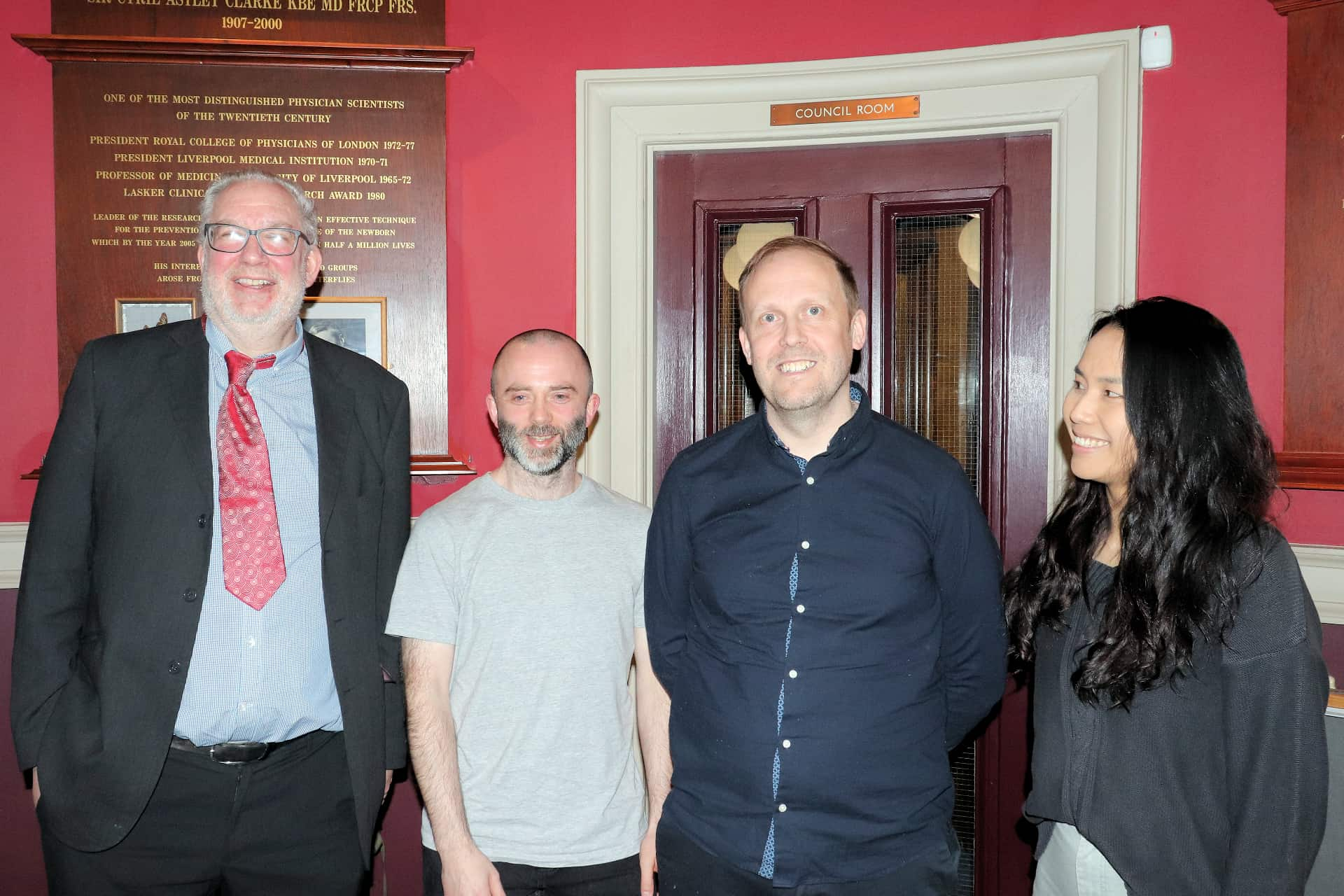
Staff and students recently gathered at Liverpool Medical Institution for Professor Ben Goult’s inaugural lecture, ‘Talin. A Mechanosensing love story, from memory to body armour and everything in between’.
In his lecture, Professor Goult gave a deeply personal account of his career to date, as well as convincing the audience of the wondrous mechanical properties of the protein talin.
Professor Goult is a structural mechanobiologist whose work combines structural biology, biochemistry, biophysics and mechanobiology to define the role of how physical and mechanical forces are sensed by cells to control cellular processes. He joined the University of Liverpool in 2024 as a Professor of Mechanistic Cell Biology in the Department of Biochemistry, Cell and Systems Biology.
Having been inspired as a third-year undergraduate by a “mind-blowing” module on NMR led by Professor Mike Williamson in Sheffield, Ben embarked on a PhD developing NMR based approaches for drug discovery. He completed his PhD and a two-year postdoctoral position at the University of Manchester, only to have his research “scooped”, leaving him in the unfortunate position of having no publications from his PhD or postdoc. However, his move to industry as a Senior Physical Scientist proved to be a turning point and in 2006, he rejoined academia.
Ben’s career has since gone from strength to strength, and he is internationally recognised for defining talin as a major mechanosensitive signalling hub and for the idea that talin possesses “molecular memory”, which led to the MeshCODE Theory of a mechanical basis of memory.
At Liverpool, Ben’s research centres on understanding the role of binary switches in memory and in coordinating brain activity, and how they are misregulated in Alzheimer’s disease, epilepsy and cancer. Ben’s research has identified that talin has incredible shock absorbing properties. He is working to harness this special property of mechanosensitive proteins in a new class of Talin Shock Absorbing Materials (TSAMs), which are being translated into new defence and consumer products.
Professor Pat Eyers, Head of the Department of Biochemistry, Cell and Systems Biology, introduced Ben’s lecture, commenting: “It was clear when I met Ben that he is an outstanding scientist, with the ability to inspire researchers young and old. His exciting 5-year plan studying talin builds on Liverpool’s rich history of protein biochemistry.”
Professor Goult said: “I’ve had a great first year in Liverpool, which has been our most productive yet! The next chapter of our work on talin is going to be very exciting, and Liverpool is the perfect environment for developing the key collaborations with scientists and clinicians needed to help us achieve this.”